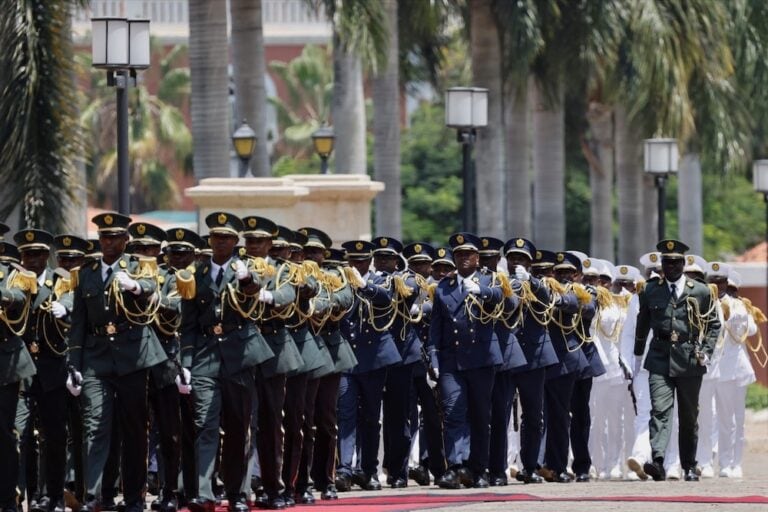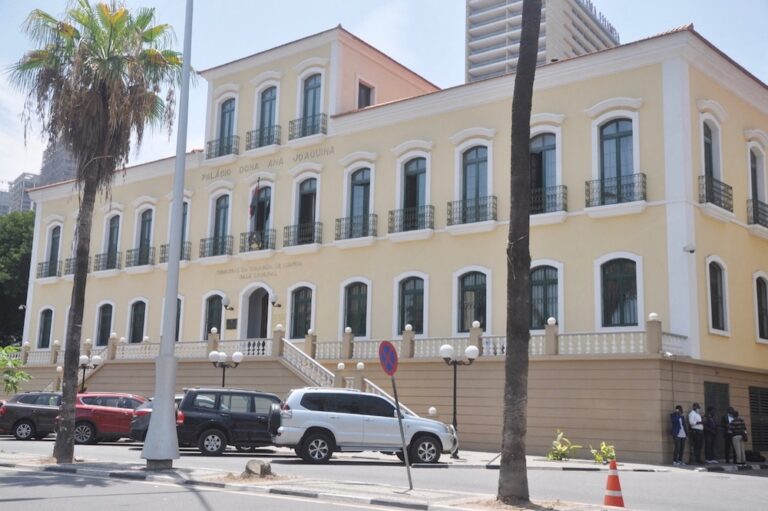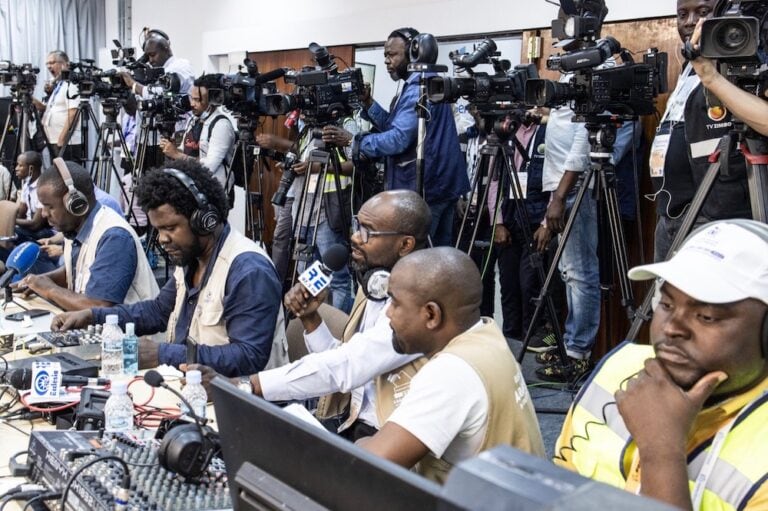(MISA/IFEX) – On 6 April 1999, the director of the Luanda-based weekly newspaper “Folha 8”, William Tonet, was subjected to interrogation for several hours at the Criminal Investigation Department (DNIC) of the Angolan police, in connection with charges laid by the military attorney’s office. The journalist told MISA-Angola that, on 3 April, a notification for […]
(MISA/IFEX) – On 6 April 1999, the director of the Luanda-based
weekly
newspaper “Folha 8”, William Tonet, was subjected to interrogation for
several hours at the Criminal Investigation Department (DNIC) of the
Angolan
police, in connection with charges laid by the military attorney’s
office.
The journalist told MISA-Angola that, on 3 April, a notification for
the
hearing was delivered to his office requesting his presence at DNIC
for
investigation. He was then interrogated for several hours by an
investigating officer who, among other things, wanted him to reveal
his
sources in the army and “the names of the generals who provide
military
information to ‘Folha 8’.” As Tonet resisted the pressure, the police
agent
then tried to intimidate him by saying that “Folha” had committed a
crime
against state security as its articles and editorials had put the
country’s
sovereignty in danger.
According to Tonet, the military attorney has made several allegations
against his newspaper. He has been accused of inciting young men
against
enlisting in the army, defamation, insult, slander against the good
name of
Angolan officials and army generals, instigation of rebellion inside
the
army, and the publishing of false and dangerous information with the
intent
to provoke a crisis of authority inside the army.
Tonet denied the charges and argued that his paper had been issuing
articles and editorials about the military service and the renewed war
since
December 1998 and had, on many occasions, emphasized that everybody,
without
exception, should serve in the army in a clear reference to government
officials and army generals who were busy sending their sons abroad to
escape military duty. “It has never been my intention to discourage
the
response to military service, otherwise I wouldn’t tell my son to join
the
army,” he said.
Two other “Folha 8” journalists, Pascoal Mukuna and Rafael Marques,
may also
be called for interrogation very soon in connection to the case,
before it
proceeds to the Attorney General’s office for the final round of
hearing
sessions. Tonet said, “this time I will struggle to get the court [to
dismiss] the formal charges so that we restore the truth and our
reputation.”
In 1998, the Angolan Government announced a compulsory call-up of
young men
born between 1978 and 1979. In January 1999, “Folha 8” reported that
the
government wanted to ban independent radio stations and newspapers
whose
output was thought to discourage young men from enlisting in the army.
The DNIC routinely conducts interrogations such as that experienced by
Tonet, in an atttempt to explore and build up a case before formal
charges
are laid by the Attorney General’s office.


